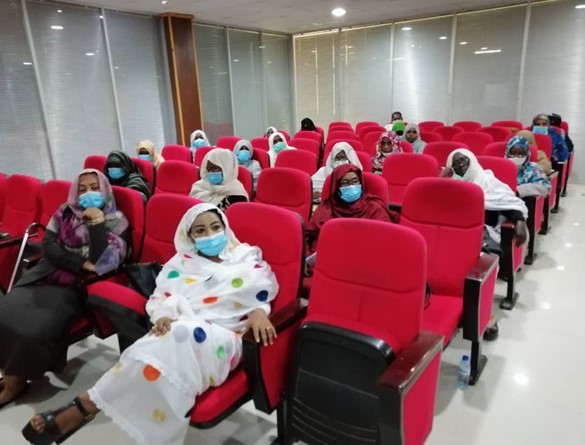
Introduction
In Sudan, access to mental health and psychosocial support varies greatly between the 18 states, with 90% of services located in the Khartoum state. The National Mental Health Programme in collaboration with mental health professionals led the development of the national guidance protocol for mental health, psychological and social support, as well as information, education and communication materials. These were disseminated widely through state mental health coordinators, ministries of social welfare, education, finance, justice, and interior, as well as civil society organizations, using different media platforms.
Mental health and psychosocial support response
The National Mental Health Programme led the development and implementation of a multisectoral plan to ensure that mental health teams were part of the emergency response dealing with the COVID-19 pandemic at both state and federal levels. This was done in collaboration with various partners, including ministries of social security and labour, public and higher education, and youth, as well as the Anti-Poverty Project, Zakat, High Council for Childhood, Higher Council for Disability, humanitarian affairs, media, international nongovernmental organizations, civil society organizations, Sudanese Red Crescent, Women's Union and Ahfad Trauma Center.
Helplines were set up for the provision of remote mental health and psychosocial support to patients in isolation centers.
State coordinators for mental health collaborated with academia to train health workers and frontline care providers on the provision of psychological first-aid.
Field staff of humanitarian agencies received orientations on the Inter-Agency Standing Committee guidelines on dealing with COVID-19.
Community leaders were engaged in informing communities about the mental health aspects of the COVID-19 pandemic.
The Federal Mental Health Programme also provided technical guidance and support to agencies and partners working with high risk groups such as people with disabilities, the elderly and children, especially those in institutions, refugee shelters and prisons.
Conclusion
Although mental health resources in Sudan vary greatly from state to state, the country’s health authorities have managed to ensure the provision of essential mental health and psychosocial support services nationwide through the development of a multisectoral action plan and partnerships with ministries, academia, nongovernmental and civil society organizations, and communities. This plan ensured that mental health teams at state and federal levels are part of the emergency response to the COVID-19 pandemic, which allowed for the provision of mental health and psychosocial support services across Sudan, with particular focus on high risk groups.


